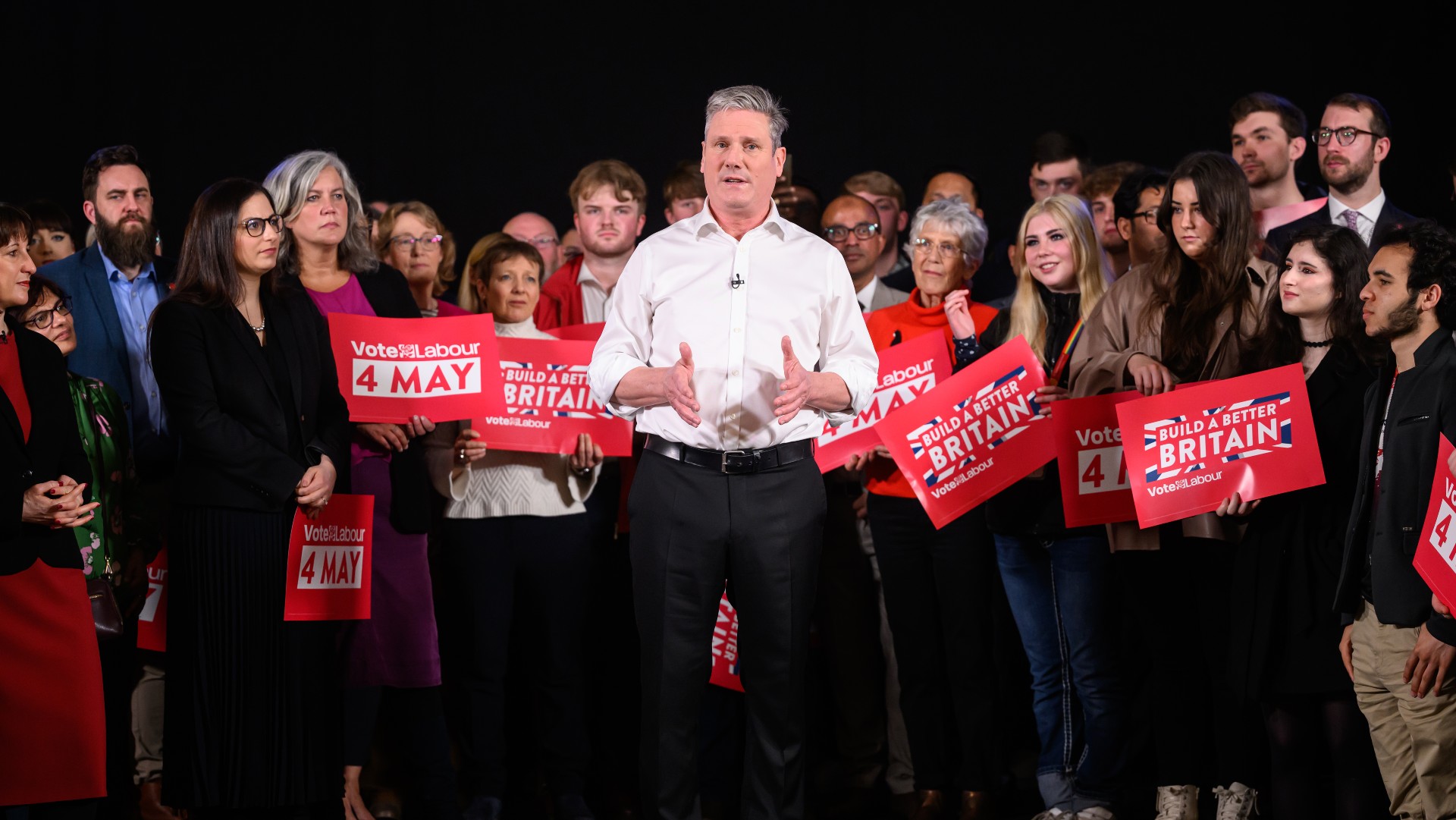Stevenage Woman: the voter who may decide the next election
‘Disillusioned suburban mother’ identified as key to Labour’s chances

A free daily email with the biggest news stories of the day – and the best features from TheWeek.com
You are now subscribed
Your newsletter sign-up was successful
It is a long acknowledged rule in British politics that a prospective party of government must identify its target demographic with an easily defined stereotype.
In the 1980s, Essex Man helped signify the working-class, suburban men who Margaret Thatcher and the Conservatives hoped would form part of its new aspirational voter coalition.
In 1997 Mondeo Man typified the kind of home- and car-owning disillusioned voter seen as key to New Labour’s return to power.
The Week
Escape your echo chamber. Get the facts behind the news, plus analysis from multiple perspectives.

Sign up for The Week's Free Newsletters
From our morning news briefing to a weekly Good News Newsletter, get the best of The Week delivered directly to your inbox.
From our morning news briefing to a weekly Good News Newsletter, get the best of The Week delivered directly to your inbox.
Now Labour under Keir Starmer hope to repeat the trick with Stevenage Woman.
Who is she?
A term coined by Labour Together, a centrist think-tank close to the party’s leadership, ‘Stevenage Woman’ is the type of voter it sees as crucial to general election success in the next 18 months.
Its Red Shift report said this “previously unidentified voter group” makes up 22% of the electorate, living in suburbs and towns predominantly in the Midlands, East and South of England.
In short, said ITV News, “she’s seen as a disillusioned suburban mother”.
A free daily email with the biggest news stories of the day – and the best features from TheWeek.com
She is described by Labour Together as a “mum, in her early 40s, with two kids” who “works hard, she plays by the rules and she pays the bills”.
While she voted Conservative in 2019, she is leaning towards Labour but does not generally follow Westminster politics and, crucially, is “not seeking radical or dramatic change, but she is worried about her life today, the state of public services, and life in her town”.
How does she differ to Workington Man?
Another key demographic targeted by Labour is so-called Workington Man. First identified by the Conservative think tank Onward in 2019, it describes those voters who had once been staunch Labour supporters but flirted with Ukip, voted for Brexit and ended up overwhelmingly backing Boris Johnson in 2019.
Labour Together describes him as a “social conservative, who leans to the left on the economy, he is a proud patriot, voted Brexit in 2016, but had – until 2019 – been a consistent Labour voter”.
“He is what many consider to be the archetypal Red Wall voter,” said The New Statesman.
Do these archetypes really matter?
“Starmer’s five missions target these voters” said The New Statesman. “Taking a hard-line stance on crime and immigration would appeal to the concerns of the Workington Man, while prioritising economic growth, NHS reform and early years education should inspire the Stevenage Woman.”
According to Guido Fawkes, Labour now holds leads of 41 points and 28 points in each group respectively.
It may have become a cliché to say that “the policy sweet spot that Labour needs to hit if it is to secure a proper majority is slightly socially conservative and slightly economically interventionist – and yet this is a perfect definition of where the average woman on the Stevenage Omnibus is, on both politics and economics”, said CapX.
Like it or not, Stevenage Woman “counts”, agreed former Labour speechwriter Phillip Collins in the Evening Standard.
He cited polling which showed that, in 2019, 44% of people who answered this description voted Tory, and now the Tory vote among this group has collapsed to 23%, with Labour polling 51%.
“The theory is that if Labour can win over this demographic group it could transform the electoral map,” said The Observer, which travelled to the bellwether constituency to see if the “mythical archetype” actually existed.
Likewise, “Stevenage is one of those seats that always votes for the winning party” said Collins. “Win in Stevenage and you are the government,” a fact highlighted when Starmer chose the town for his first visit after becoming leader.
The problem with all this, said The New Statesman, is that “voters are human, and though some may fit a specific profile, many do not. You can extrapolate some policy takeaways, but if Starmer wants to win the election he will have to build trust”.
“From our time in Stevenage,” said The Sun, “it is clear Keir – and indeed all politicians – have a lot to do to win over the town’s hard-working women”.
“But one thing that is apparent – there is not one Stevenage Woman but many, and should Labour believe she’s an individual, it will be at their peril,” it added.